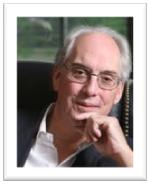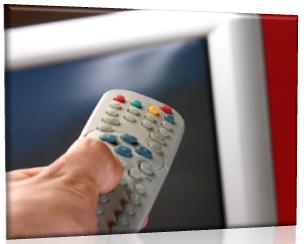 On last week’s investor call, Saga CEO Ed Christian gave a (as always) transparent view (as much as possible) of the state of radio – and his company. Ed is famous for substantive analyses of the industry and where it’s headed. He takes the issues head-on, and uses these calls to sound off about what’s good, bad, and otherwise for radio and the media business.
On last week’s investor call, Saga CEO Ed Christian gave a (as always) transparent view (as much as possible) of the state of radio – and his company. Ed is famous for substantive analyses of the industry and where it’s headed. He takes the issues head-on, and uses these calls to sound off about what’s good, bad, and otherwise for radio and the media business.
It was an off quarter for Saga, and while Ed talked about specific issues facing Saga, he went out of his way to praise television.
In fact, he said TV is “kick a__.”
According to Ed, they’re simply doing better in revenue generation, the buying and selling of stations, and confidence. That last attribute is something that is often lacking on the radio side when 1% growth is equated to winning the Super Bowl. It’s easy to blame politics, the loss of personalities, the acquisition of new stations, or
anything else that’s within sight for radio’s failure to amp-up revenue and grow its value.
But maybe it’s as simple as content excitement. Or swagger.
I recently had dinner with a group of radio executives and after we were done discussing that day’s events, a 45 minute conversation ensued about…television. NPR’s On The Media hosts Brooke Gladstone and Bob Garfield call this phenomenon about the quality of TV programming “The Golden Age of Content.” Based on this mealtime discussion, they’re right on the money.
 The conversation revolved around what programs we were all watching, and the series we are addicted to. And whether Homeland has “lived up to the hype.” Whether Mad Men has lost it this season. Why no one at the table is really into Breaking Bad. Whether Netflix is really onto something with House of Cards. And why more people aren’t watching the incredible Justified series on FX.
The conversation revolved around what programs we were all watching, and the series we are addicted to. And whether Homeland has “lived up to the hype.” Whether Mad Men has lost it this season. Why no one at the table is really into Breaking Bad. Whether Netflix is really onto something with House of Cards. And why more people aren’t watching the incredible Justified series on FX.
And on it went…for 45 minutes.
From Good Wife to 24 to House of Cards to Game of Thrones, the conversation enthusiastically moved from show to show, series to series. And everyone at the table was engaged, enthusiastic, and well informed by what they’ve been watching on TV over the past several years.
Conversely, we weren’t talking about Nash-FM, low power FMs, or anybody’s collective contesting. Truth be told, it is radio’s personalities that elicit water cooler talk, but so much of what radio programs and creates musically is well below radar and rarely compels or enchants.
Now some might say that I’m mixing apples and oranges here – that it’s unfair to compare content between two very different media industries. Or that you can’t A:B a TV series with a radio station’s music format. But content is content, compellingness is our goal, and the ability to create habit-forming, conversation starting programming is what it’s all about.
If radio is to grow its revenue and its value, it needs to expand its footprint.
It needs to become a part of the conversation.
It needs to be brought up at the dinner table by consumers and radio executives alike.
It needs to engage, delight, and be remarkable.
Radio’s future has less to do with the economic winds, political advertising cycles, and Obamacare.
It has everything to do with innovation, invention, personality development, new formats, and risk.
That’s a big reason why television has weathered the storm, has survived the tsunami of gadgets, second screens, and DVRs.
It has great content that people care about.
That’s what it means to kick a__.
- A 2020 Lesson?It Could All Be Gone In A Flash - April 24, 2025
- How AI Can Give Radio Personalities More…PERSONALITY - April 23, 2025
- Can Radio Afford To Miss The Short Videos Boat? - April 22, 2025




Good read and thoughts Fred. There certainly is great creative in TV right now…without question, but to me the secret sauce is the time-shifting dynamic. The ability to consume that product, on MY terms and timetable..
Is priceless.
DP
Dave, you are spot on with that comment. It wasn’t that long ago that if you missed an episode of “24,” you had to hope that someone in the office taped it and would bring the VHS cassette to work. Today, it is so much easier to consume entire series – a big part of the “video addiction” phenomenon. Thanks for taking the time to chime in.
While the original appointment medium still enjoys its status as such, it’s not without vulnerability. And when will radio recognize this?
Yes, we still “appoint” ourselves for live sporting events and award shows and other productions of the like, but thanks to TiVo, DVR, Hulu, Netflix and on-demand, TV has become for the most part “no appointment necessary”. Think of where we are now. With the exception of a few programs we have the ability to shift content on a whim, skip commercials and archive for marathon viewing at a later date. Never before have we been able to throw a fist full of quarters in the air and catch them one-at-a-time without letting any hit the floor. Game changer…
Yes TV is enjoying a golden age to some extent, but it also is not immune to a lot of the technology and consolidation tsunami that was swept many industries.
At the same time, regardless of how it’s served and when it’s consumed, the content is still there.
Radio? Where’s the content? Where has the uniqueness of original and organic content gone?
For some reason we’ve allowed our shiny ship to sail off to the horizon. We stand at the shore waiting for it to return instead of building a new one. Or perhaps we forgot how to build one.
It’s no secret our content is “immediate”. We’ve touted this virtue for many years only to turn our backs on it and wonder why we can’t get the same traction as other “immediate” or even “time shifted” mediums.
Radio has always played the TV game, the local game and the pop culture game as the “post-game”. We recap and recount what happened. We offer “here’s what happened on Idol last night” or “if you missed the series finale of The Office, we’ll tell you what happened in 10 minutes”. With Twitter, Facebook and other new mediums chances are the audience has already moved past that point.
So without our own content, are we self-regulated to continuing to play the “post-game”? Until we realize how and where we should compete, someone else’s content is still king I guess.
Where’s our Idol? Where’s our Duck Dynasty, Walking Dead or Mad Men? Real Estate at the water cooler is not owned, it’s earned. Let’s stop playing from the rear and get out in front. Content that is compelling, memorable and “must have” is not derived from the “norm” or the “safe”. It’s born out of “risk”. We stopped taking chances. Too few programmers and owners are willing to say “what if?” There is no reward without risk.
We have the ability with our brands and their complementary off-shoots (fb, Twitter, web, pod) to be immediate, relevant and viral more so than ever before. In many ways this has allowed “radio” to compete on an entirely different level. But without the willingness to chuck the playbook and draw up a few plays in the dirt, we’re not really willing to play the game. Nobody remembers the plays from the book. It’s the occasional bomb conceived in the huddle as you point to the lines on the palm of your hand and diagram something that has never been done before that scores the touchdown. That gets remembered…
As has been stated, “the Golden Age” still exists for TV because for the better part, TV is still TV.
Unfortunately Radio stopped being Radio….
Just my .02
Scott Miller
Wow Scott!
Thank you for your well thought out response to Fred’s great topic.
As the co-host of a syndicated show that’s still on radio (Lex and Terry) your response brought tears to my eyes. Why? Because we KNOW how to create content. We know how to make people talk, laugh, cry, get angry and to rally the troops. It’s what we do. We still have a passion to do it and are exercising it for 5 hours a day … 5 days a week. We LOVE radio and at this point feel lucky to just have a job. My point is that we’re still doing our part at a high level. We know who our listeners are and give them what they expect everyday. But there are mornings when you wonder why we’re still trying so hard. Trust me, the listeners still get it. They are there. They love our product. They love and support the radio stations we’re on. They trust us when we turn them on to a fantastic new sponsor. So, where are the passionate programmers? Where are the companies who used to look at us as an asset? What the hell is going on?
We have adapted. We play the social media game. We have the website, apps and invest and believe in our own product. We’ve been looking for that one radio executive to believe in us. We’re prepared to take it all online if we have to. But we don’t want to.
Terry Jaymes
Lex and Terry Radio Network
Terry,
There’s no crying on Fred’s blog…. 🙂
I know there are many out there like you throwing everything you have at it. And congrats on your success. My .02 is more about how we’ve seemed as an industry to have forgot who brung us to the dance. Ignore it (them) and the dance moves elsewhere.
BTW: Don’t kid yourself. As a programmer and morning guy I know it’s not 5 days a week, 5 hours a day. It’s 24/7 if you want to win!
Scott
Terry, you provide a great description of the trajectory that a lot of jocks, personalities, and shows have experienced over the past few years. While the industry has gravitated to syndication, there are fewer stations, fewer companies, and fewer opportunities. It’s a tougher putt than ever before. More people are working harder and getting less compensation – and reward. Hang in there, and thanks for reading our blog.
Scott, sorry to be late adding a comment and thanking you here. And also for responding to Terry. Your thoughts echo many others in radio who have that deep urge to create, build, and grow great programs and assets. Events of the past several years – from the economy to consolidation to Wall St. to PPM to disruption – have obscured that goal. Thanks for making some great points and adding to our conversation. Tomorrow’s post showcases a UK broadcaster doing it right. I hope these posts are helpful and not depressing.
Actually, crying, whining, and complaining are allowed here, but fortunately, most readers offer more constructive contributions – like you. Thanks, Scott, for reading the blog and bringing your thoughts to the table.